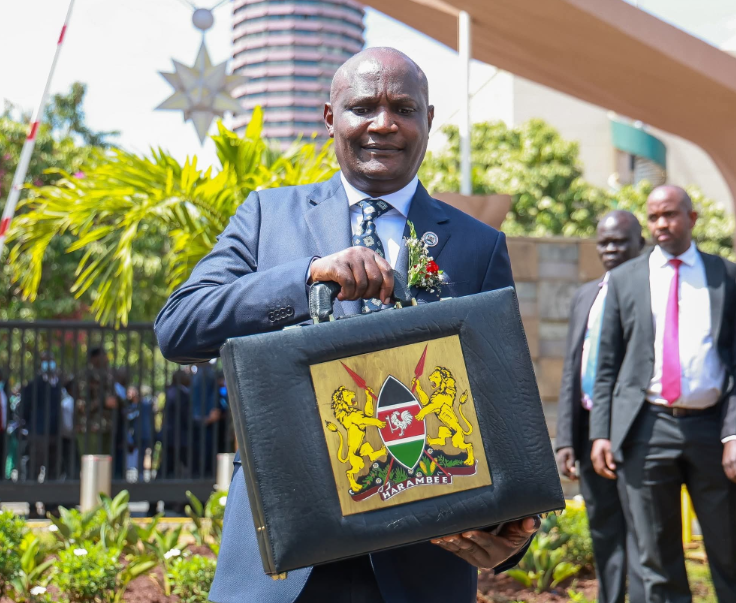
The proposal to limiting tax loss carry-forward period for companies to five years will hurt investors, private sector players now say, amid calls for its deletion.
Under the Finance Bill 2025 currently before Parliament, the government seeks to place a cap on the period businesses can be allowed to carry forward losses which have traditionally been offset against future taxable income, easing cash flow pressure on entities.
Current regulations allow companies to carry forward losses indefinitely, providing relief for capital-intensive businesses that experience long-term deficits due to substantial initial investments.
Telecommunications and technology firms, including Safaricom, manufacturers and Kenya’s private sector have however argued that capping loss carry-forward undermines investor confidence and penalises companies undertaking large-scale infrastructure projects, potentially deterring long-term investments.
“While we understand the policy objective of curbing perpetual deferral of tax liabilities, a five-year blanket restriction on the carry forward of all tax losses may inadvertently penalise sectors with long gestation periods and high capital intensity such as the manufacturing sector,” Kenya Association of Manufacturers CEO Tobias Alando said.
According to KAM, the move will significantly affect investor confidence, especially in sectors such as steel, cement, edible oil processing, infrastructure and other capital-intensive manufacturing industries.
“In the current high-interest rate environment, many businesses incur losses not because of weak operations but due to substantial financing costs, especially during the startup and expansion phases. KAM proposes the deletion of this proposal. An alternative would be to allow a carry-forward period of seven years for trading (operating) losses which will allow businesses to stabilise and achieve profitability in a more realistic time frame,” the association told the Star.
Kenya Private Sector Alliance (Kepsa) has also called for retention of indefinite carry forward of tax losses.
“Kepsa strongly advocates for retaining the provision allowing the indefinite carry forward of tax losses, which the Finance Bill 2025 proposes to eliminate from the Income Tax Act. This measure is essential to support businesses facing financial difficulties and promote long-term investment,” the private sector lobby group said.
Currently, a company is allowed to carry forward its losses that will be offset against future taxable income, but these losses cannot be transferred to a different entity.
The private sector players said the move by government will impact companies that had significant historical losses owing to past inefficiencies that have since been restructured and now in a profit streak.
For such companies the historical losses should be allowed indefinitely provided that no new losses are being accrued, according to KAM, whose members are among the biggest investors in Kenya’s industrial space.
Majority of these heavy industrial investments are funded through loans and strategic capital injection by private equity funds, among other forms of investment.
In their Finance Bill memoranda, Kenya Breweries and United Distillers Vintners (UDV) argued that the clause will impact current and future start-ups given that most businesses in Kenya break-even way beyond five years.
"This may discourage opening or running of new business. Further market distortion is brought about by the fact that in Tanzania, carry forward of losses is indefinite, while in Uganda, it is seven years with the subsequent 50 per cent of the deficit being allowed indefinitely in succeeding years," they said.
Treasury CS John Mbadi during his budget speech last Thursday said to support the government’s economic agenda and sustain key programmes, Treasury will continue to implement a balanced mix of tax policy and administrative measures aimed at significantly boosting revenue collection.
This comes as treasury seeks to cut on tax reliefs extended to businesses.
Mbadi noted that revenue forgone through tax incentives (tax expenditures) has increased significantly, rising from Sh393.1 billion which is equivalent to 2.9 per cent of GDP in 2022 to Sh 510.6 billion, which is equivalent to 3.4 per cent of GDP in 2023.
“To reverse this trend, the Finance Bill, 2025 proposes reforms to rationalise tax expenditures so as to promote equity, fairness, efficiency and reduce distortions within the tax system,” he said.
The proposed reforms, the CS said, are in line with the National Tax Policy and the Medium-Term Revenue Strategy, with the proposed reforms expected to raise Sh30 billion as additional revenue.
“As part of the process, the government is focused on broadening the tax base while reducing the burden of compliance. In this regard, we have prioritised sectors such as the digital economy, agribusiness and Small and Medium Enterprises in tax education and outreach programmes,” said Mbadi.
Kenya Revenue Authority continues to embrace modern technology to streamline tax processes, facilitate trade, and enhance voluntary compliance.
Meanwhile, Treasury has affirmed the government’s commitment to pay pending bills to improve cash-flow among businesses, with the advice of the Pending Bills Verification Committee expected to give its final report by end of this month.
Since its inauguration, the committee has received a total of 65,627 pending bills claims valued at Sh571.6 billion.
The Committee has so far analysed 57 per cent of the bills received, valued at Sh 522.9 billion. Out of this, a total of Sh229 billion has been recommended for settlement.
“Once the Committee submits its report, we shall submit the recommendations to Cabinet for approval to settle the pending bills,” said Mbadi.










![[PHOTOS] Elgeyo Marakwet landslide victims arrive in Eldoret for care](/_next/image?url=https%3A%2F%2Fcdn.radioafrica.digital%2Fimage%2F2025%2F11%2F425460d9-7ff1-4975-8a1f-cd0aaefb7812.jpg&w=3840&q=100)

